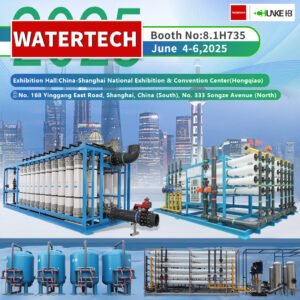Reverse Osmosis and Water Treatment in Benin: Addressing Water Challenges for Sustainable Development
CHUNKE projects of Reverse Osmosis and Water Treatment in Benin including different types of water treatment systems.
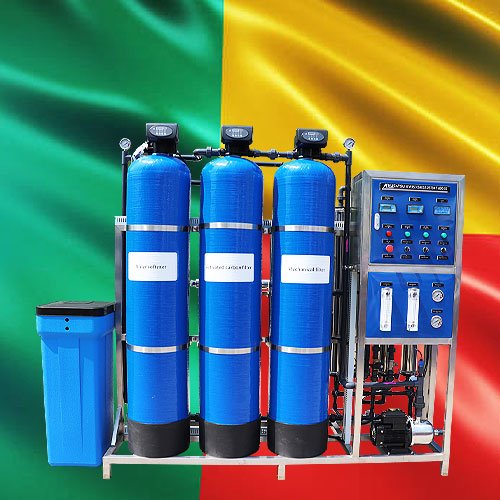
Access to clean and safe water is a fundamental human right and a crucial factor in promoting public health and socioeconomic development. In Benin, a country located in West Africa, the availability and quality of water sources pose significant challenges. This essay explores the importance of water treatment and reverse osmosis as effective solutions for ensuring access to clean water in Benin. Data from reliable sources such as Knoema and the World Bank will be utilized to provide insights into the current state of water sources in the country.
Current State of Water Sources in Benin:
Benin faces numerous water-related challenges, including limited access to clean water sources and inadequate sanitation facilities. According to data from Knoema and the World Bank, in 2021, only approximately 61% of the population in Benin had access to improved drinking water sources. This indicates that a significant portion of the population still lacks access to safe and reliable water.
Furthermore, the quality of available water sources is a concern. Contaminated water leads to the spread of waterborne diseases, such as cholera and typhoid fever, which pose significant health risks. Inadequate sanitation practices further exacerbate these issues, emphasizing the urgent need for effective water treatment solutions in Benin.
Water Sources in Benin
Between 1971 and 2020, Benin renewable surface water remained stable at around 26.1 billion cubic meters per year.
- Renewable groundwater: 1.8 billion cubic meters per year
- Renewable water resources: 26.4 billion cubic meters per year
- Renewable water resources per capita: 2,176.8 cubic meters per year
- Dependency ratio: 61 %
Meanwhile, CHUNKE provides wide range of filtration and economical solutions based on the Benin’s water resources and our water treatment in Benin becomes more popular.
Benin’s main water resources are:
- Surface water is water from river, lake which can be treated using different methods, such as Ultrafiltration Systems, Brackish Water RO accordingly.
- Desalination can be used for water from ocean, or sea source, which can be treated using Sea Water Reverse Osmosis Systems; Desalination Systems
- Ground Water or brackish water is from water located in the pore space of soil and rock “Borehole well”, which can be treated using Reverse Osmosis Systems, Borehole Water Filtration Systems, Well Water Filtration Systems, Chemical Dosing, UV Water Sterilizer accordingly.
- Government water supply, which could have high level of hardness or high level of chlorine, can be treated with Water Softener System, Media Water Filters.
CHUNKE has over 15 years of experience as a global provider of B2B water treatment solutions for a variety of applications and industries, we offer a large selection of all types of reverse osmosis, ultrafiltration, electrodeionization and water treatment systems to meet your industrial needs accordingly. CHUNKE’s extensive global experience in engineering and manufacturing allows us to pre-engineer and customize water treatment and reverse osmosis systems to meet a wide range of customer requirements and specifications.
CHUNKE Projects of Water Treatment in Benin
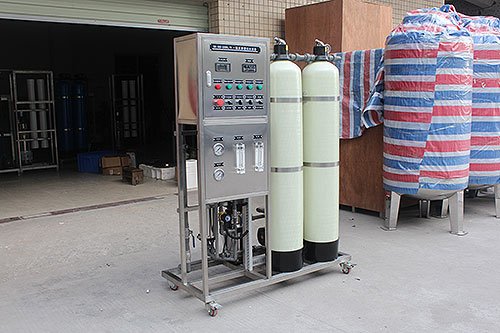
250LPH Reverse Osmosis System for Borehole
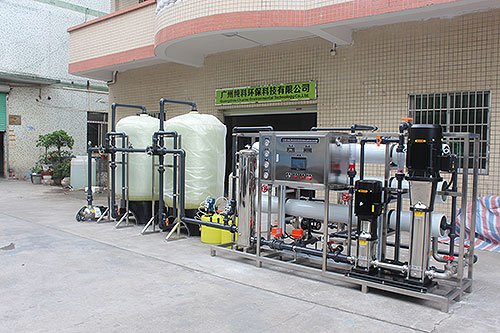
5000LPH Brackish Water Desalination System
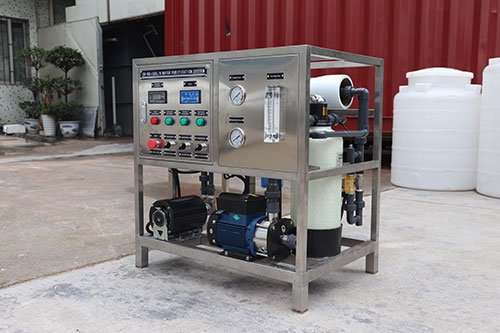
100LPH Reverse Osmosis System for Drinking
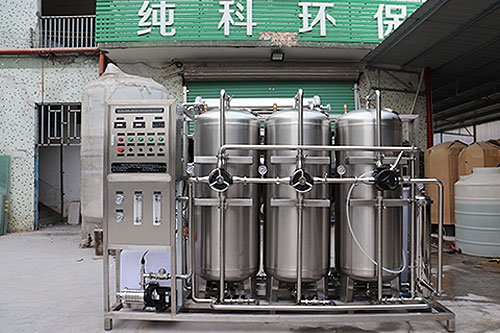
3000LPH RO Water Purifier for Hospital
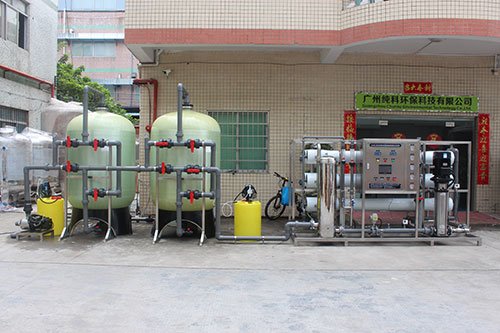
10000LPH Reverse Osmosis Plant for Water Bottling
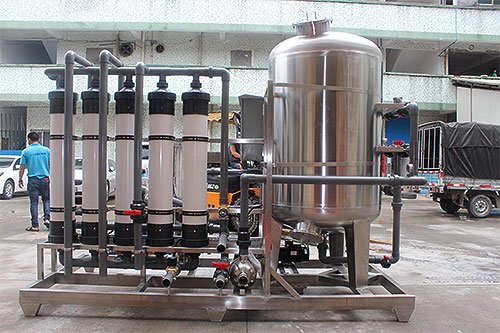
10000LPH Ultrafiltration System for River Water
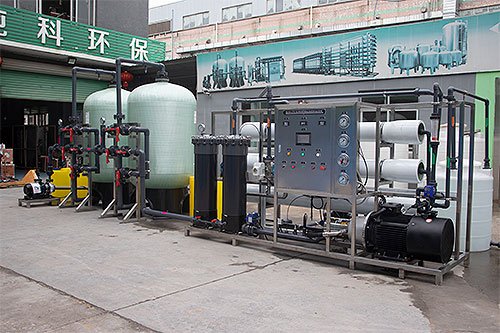
100TPD Seawater Desalination Ssystem - SWRO
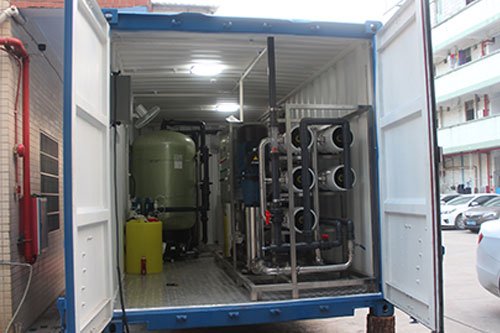
10TPH Containerized Water Treatment System
Water Treatment and Reverse Osmosis:
Water treatment processes play a vital role in removing contaminants and improving the quality of water, making it safe for consumption. Reverse osmosis (RO) is an advanced water treatment technology that has proven to be highly effective in addressing water quality issues.
Reverse osmosis operates by utilizing a semi-permeable membrane to remove impurities and contaminants from water. This process involves applying pressure to force water molecules through the membrane, leaving behind dissolved solids, microorganisms, and other pollutants. The result is purified water that meets or exceeds international drinking water standards.
Benefits of Reverse Osmosis in Benin:
Implementing reverse osmosis technology in Benin can have numerous benefits for both individuals and the country as a whole:
Improved Public Health: By providing access to clean and safe drinking water, reverse osmosis systems can significantly reduce the prevalence of waterborne diseases, thereby improving public health outcomes.
Economic Advancement: Access to clean water is essential for various sectors, including agriculture, manufacturing, and tourism. By ensuring a reliable supply of purified water, reverse osmosis can contribute to economic growth and enhance livelihoods.
Environmental Sustainability: Reverse osmosis is a sustainable water treatment solution that reduces the dependence on single-use plastic water bottles, which often contribute to environmental pollution. By promoting the consumption of treated tap water, this technology can help reduce plastic waste.
Resilience to Climate Change: Benin, like many other countries, faces the challenges of climate change, including water scarcity and erratic rainfall patterns. Reverse osmosis can provide a reliable and decentralized water treatment solution that is less vulnerable to climate fluctuations.
Conclusion:
Access to clean and safe water is a fundamental right and a crucial component of sustainable development. In Benin, where water sources face significant challenges, the implementation of water treatment technologies such as reverse osmosis can play a pivotal role in ensuring access to clean water. By leveraging data from reliable sources like Knoema and the World Bank, policymakers and stakeholders can make informed decisions to address the water-related challenges and work towards a sustainable future for the people of Benin.

